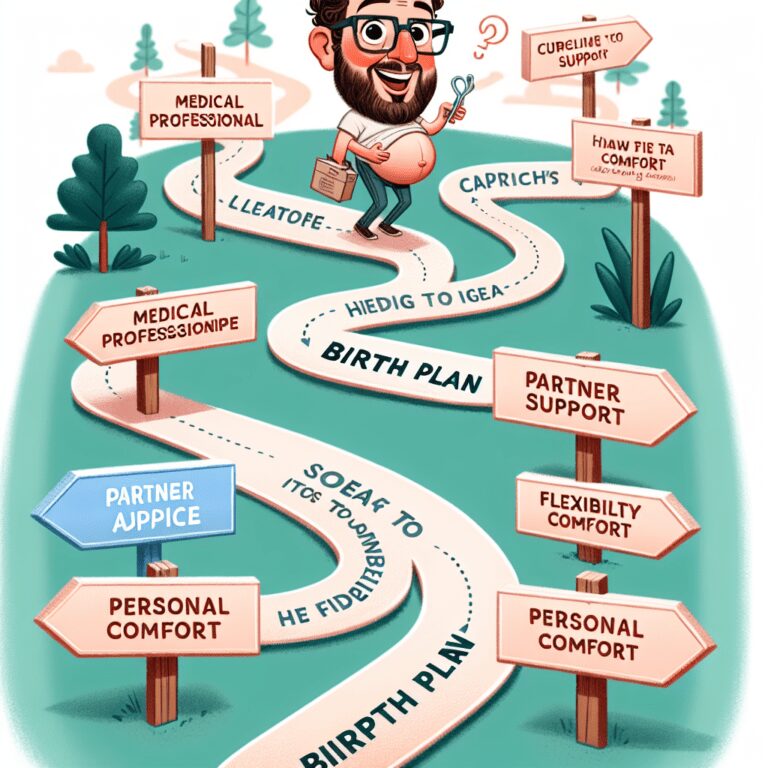

Overview
Stepping into fatherhood is a monumental phase in any man’s life. Among the myriad responsibilities that come with being a new dad, accompanying your partner to medical appointments is crucial. These visits can be overwhelming, but with the right approach, you can transform into the ultimate support system for your partner. Let’s explore how you can navigate these appointments with confidence and compassion.
Why Your Presence Matters
Your active involvement during medical appointments communicates volumes about your commitment to your partner and your growing family. It’s not just about being physically present; it’s about engaging in the process, showing empathy, and offering emotional support. Your presence can alleviate stress and anxiety, making the journey more manageable for your partner.
Who Can Benefit
While this guide is tailored for new dads, the insights shared here can be beneficial for anyone looking to support a loved one through medical appointments. Whether it’s your spouse, sibling, or friend, understanding how to offer meaningful support can make a significant difference.
Preparing for the Appointment
- Schedule Smartly: Try to choose a time when you both can attend without rushing from other commitments.
- Do Your Homework: Research about the visit’s purpose, what to expect, and standard procedures or tests.
- Prepare Questions: Write down any questions or concerns you or your partner might have.
- Pack Essentials: Bring along any necessary documents, snacks, water, or anything else that might make the visit more comfortable.
During the Appointment
- Active Listening: Pay close attention to what the healthcare provider says. Take notes if necessary.
- Ask Questions: Don’t hesitate to seek clarifications or more information on any aspect of the care.
- Offer Emotional Support: Hold your partner’s hand, offer reassuring touches, and maintain a positive demeanor.
- Respect Boundaries: Follow your partner’s lead on how involved they want to be in discussions and decisions.
After the Appointment
- Debrief Together: Discuss what you learned and how you both feel about the appointment.
- Plan Ahead: Make plans based on the advice or instructions received.
- Follow Up: Ensure you both understand any follow-up steps and help schedule future appointments if needed.
- Self-Care: Remember to take care of your emotional and physical well-being too.
Understanding Medical Terminology
Familiarizing yourself with common medical terms can enhance your confidence and participation during appointments. Don’t hesitate to ask healthcare providers for explanations or clarifications.
Balancing Work and Appointments
Juggling work responsibilities with medical appointments can be challenging. Communicate with your employer about your situation, explore flexible working arrangements, and prioritize your family’s health needs.
Pros and Cons of Your Involvement
Pros:
- Strengthens your bond with your partner.
- Offers emotional support and comfort.
- Provides a second set of ears for important information.
Cons:
- Time away from work or other responsibilities.
- Potential for increased anxiety or worry.
- Balancing personal emotional responses with being supportive.
Similar Resources
Books like "The Expectant Father" by Armin A. Brott and "The Birth Partner" by Penny Simkin offer comprehensive guidance on navigating the journey of fatherhood, including how to be supportive during medical appointments.
Opinions, Examples, Comparisons
The experience of being a supportive partner during medical appointments can vary widely. Some find it deeply rewarding and a chance to bond, while others may initially feel out of their depth. Comparatively, being present and engaged from the start sets a positive tone for your involvement in your child’s life.
FAQs
Q1: How can I support my partner if I can’t attend every appointment?
A1: Stay involved by discussing before and after the appointment, offering emotional support, and helping with any preparations or follow-ups.
Q2: What if I feel overwhelmed during the appointment?
A2: It’s okay to feel overwhelmed. Take a moment to breathe, focus on being present for your partner, and discuss your feelings with them afterward.
Q3: How do we balance advice from healthcare providers with our own instincts?
A3: Consider both the professional advice and your instincts. It’s okay to seek second opinions if something doesn’t feel right.
Q4: Can my involvement be too much?
A4: While it’s crucial to be supportive, it’s also important to recognize and respect your partner’s need for space or independence.
Q5: How can we make the most of the limited time with healthcare providers?
A5: Prepare questions in advance, prioritize your concerns, and take notes during the appointment for later reference.
Instantly Access Your FREE Children’s Books Here!
Disclaimer: As an Amazon Associate, I earn from qualifying purchases. I may earn a commission from qualifying purchases as an affiliate. Please note that I only recommend products I believe will provide value to my readers.








